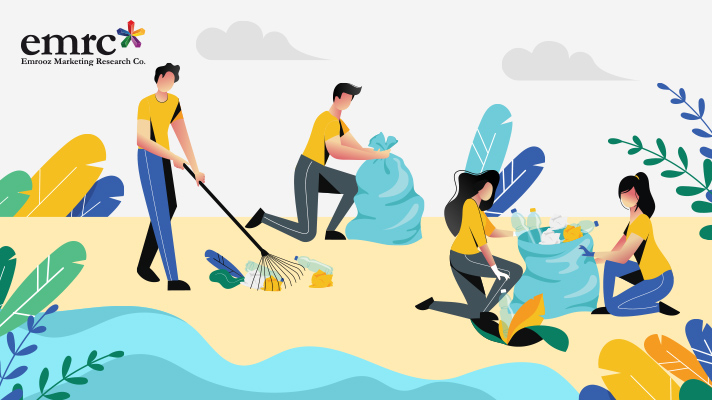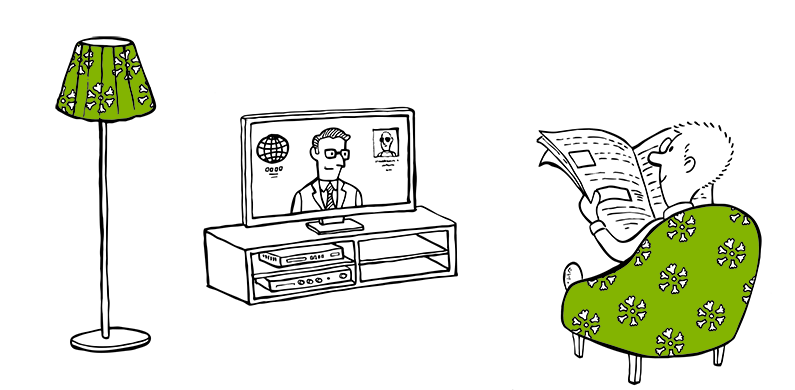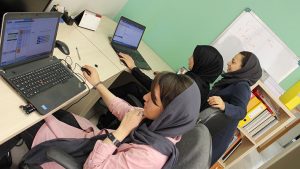
A Survey on Iranians, Volunteer Work and NGOs
A dnaunion subsidiary, emrc has partnered up with WIN (Worldwide Independent Network of Market Research and Opinion Poll), to survey Iranians participation in volunteer work.
In September 2019, WIN conducted a global survey in collaboration with local partners in host countries. Through the survey, 29,368 people from 40 countries were questioned. A dnaunion subsidiary, emrc was WIN’s partner in Iran.
During the survey, 500 people from across Iran were interviewed via phone. The questions focused on volunteering and NGOs. The data gathered from Iran were compared with countries.
Data gathered by WIN indicates that 23.7% of people from around the globe did volunteer work in 2019. People with higher education backgrounds and university students did more volunteer work.
The number of people engaged in volunteer work in 2019 had observed a 17% decline compared to a year earlier. In 2018, 28.5% of the participants did volunteer work.
The rate was the lowest in the Middle East and North Africa and stood at 16.9%. It was highest in Australia with 63% and lowest in Pakistan with 4.6%.
The gathered data put Iran with 16.4% at the 30th place between Lebanon (17.4%) and Poland (15.1%). Iran’s neighbor Turkey with 30% claimed the 12th place on the list.
In Iran, people with academic education, Millennials (Gen Ys), and university students did more volunteer work.
Trust in NGOs
According to the result, 55% of the participants from around the globe trusted NGOs and nonprofits. The rate was higher among younger generations, university students, and people with academic backgrounds.
The trust rate was lower than the global average and stood at 43% in the MENA region.
The rate was highest in China (97%) and the lowest in Italy (28%).
The gathered data put Iran with 50% at the 25th place between Ireland (53%) and Chile (49%). Iran’s neighbor Turkey with 30% claimed the 12th place on the list. Iran’s neighbor Turkey stood at 14th place with the rate hovering above 58%.
In Iran, people with academic education, Millennials (Gen Ys), and university students had more trust in NGOs and nonprofits.
Donation to NGOs, Nonprofits
Donations to NGOs and nonprofits were categorized into three groups in this survey. The NGOs that receive more donations are the ones that give support for the development of the poorest countries and children (24.4%), followed by the ones that work for the environment -water, pollution, plastic, animals (22.5%) and fewer people donate to scientific/medical research (15.7%). In Iran NGOs falling in the above-mentioned categories respectively received 24.1%, 21.8%, and 12% shares of the total donations.
Scientific and Medical Research
Around the world 15.7% of people donated to scientific/medical research. The rate stood at 30.9% in the MENA region.
Australian had the highest amount of contribution to the field in the form of donations with 69% and South Koreans the lowest rate with 1%.
Iran with 12% claimed the 21st place on the list between Hong Kong (12.7%) and South Africa (11.8%). Turkey stood at 14th place with the rate standing at 20%.
In Iran, people with academic education, Millennials (Gen Ys), and employed people were more prone to donate to the scientific/medical research.
Environment
Around the world, 22.5% of donations went to work for the environment. The rate was 36% in the MENA region.
China had the highest amount of contribution to the field in the form of donations with 78% and South Koreans the lowest rate with 3%.
Among the 40 surveyed countries Iran with 21.8% stood at the 20th place between Ireland (22.1%) and Hong Kong (21.4%). Turkey with 27.5% stood at 11th place.
In Iran, people with academic education, Millennials (Gen Ys), university students, and employed people were more prone to donate to the NGOs active in the field.
According to the gathered data, 38.5% knew about climate change and its impact. 57% of people donating to organizations active in the field trusted NGOs and nonprofits.
In Iran, 37.2% of the participants knew about climate change and its impact. 53.4% of Iranian donors trusted NGOs and nonprofits.
Development of Poorest Countries and Children
According to the survey, 24.4% of participants donated to NGOs focusing on the development of the poorest countries and children. The rate stood at 37% in the MENA region.
Australian had the highest amount of contribution to the field in the form of donations with 72% and South Koreans the lowest rate with 4.5%.
Among the 40 surveyed countries Iran with 24.1% stood at the 20th place between the UK (24.3%) and India (24.0%). Turkey with 27.5% stood at 11th place. Turkey with 33% stood at 13th place.
In Iran, people with academic education, baby boomers, and employed people were more prone to donate to the NGOs active in the field.
Vilma Scarpino, President of WIN International Association, said, “The WIN Worldwide Survey shows that despite the majority of the population declare high levels of trust towards NGOs, people are not very inclined to fund them or dedicate time to some voluntary work. This might be an opportunity for NGOs to show their work and increase people´s confidence.”





